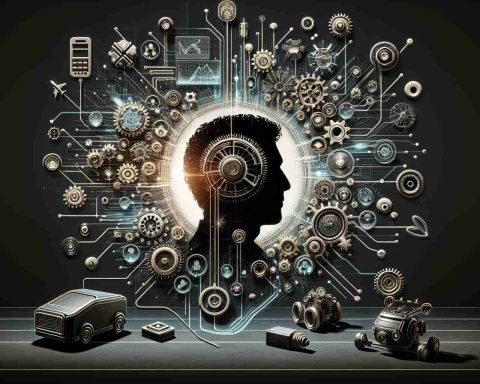In the near future, a new era of collaborative AI systems is poised to revolutionize industries, allowing AI agents to work together seamlessly in what is known as multi-agent AI. These advanced agents operate in the background, autonomously interpreting, adapting, and executing tasks previously reserved for humans. Unlike traditional AI systems, these agents have the capacity to think independently and even replace humans in certain tasks. Ranging from software to robots to unmanned aerial vehicles, these AI agents are set to transform fields such as logistics, power grids, manufacturing, and disaster response.
Studies in the United States indicate that 71% of companies anticipate AI agents enabling smoother automation processes, reducing repetitive tasks for human workers. Reports from technology service company Capgemini reveal a significant uptick in AI integration across various functions. Specifically, the adoption of AI technologies is expected to rise substantially by 2024, with a fourfold increase seen in companies leveraging AI for innovation. Notably, enterprises with annual revenues exceeding $20 billion demonstrate a higher adoption rate of AI technologies at 49%, compared to companies with revenues between $1 to $5 billion, where only 10% have embraced AI initiatives.
Furthermore, sectors like aerospace and defense are leading the charge in AI innovation, with 88% of enterprises investing in AI research and development for generative purposes, outpacing industries like retail at 66%. Major corporations are doubling down on AI initiatives, conducting rigorous experiments to expedite their path to tangible results. The dawn of collaborative AI systems signals a transformative shift, promising increased efficiency and competitiveness across diverse sectors.
The Rise of Collaborative AI Systems: Exploring New Dimensions
In the realm of collaborative AI systems, intriguing advancements continue to unravel, reshaping industries as we know them. One key question that arises is: How do these multi-agent AI systems navigate the complexities of collaboration within dynamic environments? The answer lies in their ability to share information, learn from one another, and adapt collectively to achieve desired outcomes.
An essential aspect often overlooked is the ethical considerations surrounding collaborative AI systems. As these agents become more autonomous, questions emerge regarding liability in the event of errors or unintended consequences. Who is responsible when collaborative AI systems make critical decisions with far-reaching implications? Addressing these ethical dilemmas will be crucial in ensuring the responsible development and deployment of AI technologies.
Key challenges accompany the rise of collaborative AI systems, including interoperability issues between different AI agents and systems. How can diverse AI entities with varying capabilities and objectives effectively communicate and cooperate towards common goals? Standardization efforts and interoperability protocols will play a vital role in overcoming these challenges to harness the full potential of collaborative AI systems.
Advantages of collaborative AI systems are abundant, offering enhanced efficiency, reduced operational costs, and increased scalability. By pooling resources and knowledge, these systems can tackle complex tasks with speed and precision, driving innovation and productivity across industries. Additionally, collaborative AI systems enable decentralized decision-making, empowering diverse agents to work in concert towards shared objectives.
Nevertheless, disadvantages lurk amidst the promises of collaborative AI systems. Concerns regarding data privacy and security loom large, especially as AI agents exchange sensitive information in collaborative environments. Safeguarding data integrity and privacy rights must be paramount to prevent breaches or misuse of confidential data. Moreover, the potential for job displacement due to the increased automation facilitated by collaborative AI systems raises questions about the societal impacts of widespread AI integration.
In contemplating the future landscape shaped by collaborative AI systems, a careful balance must be struck between leveraging their transformative potential and mitigating associated risks. Embracing innovation while upholding ethical standards and regulatory frameworks will be imperative in steering towards a future where collaborative AI systems benefit society as a whole.
For further insights into the evolving landscape of artificial intelligence and collaborative systems, explore reputable sources such as IBM AI, Microsoft AI, and OpenAI. These industry leaders provide valuable perspectives on the cutting-edge developments in AI technology and its applications across diverse domains.

















